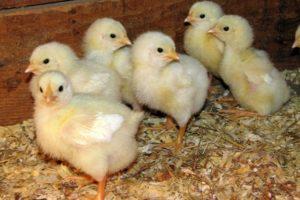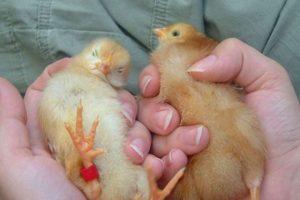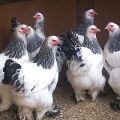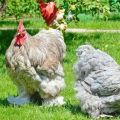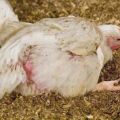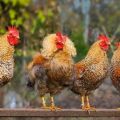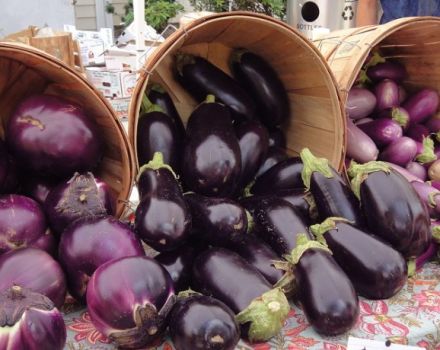What to do if chickens peck each other to blood, causes and treatment of cannibalism
Poultry breeders often face various problems that are associated with the behavior of poultry. It often happens that they begin to behave aggressively, pluck out feathers and even arrange bird cannibalism. There are many reasons for this behavior, so it is important to know what to do if chickens peck each other until they bleed.
Why chickens peck each other
The reasons for inappropriate and aggressive behavior in birds are directly related to the conditions of housing, diet and problems in the relationship of poultry.
Room illumination
Too bright light in the house can cause nervousness and increase aggressiveness in chickens. Since they can easily notice the blood, the birds begin to peck out exactly these places..
Crowding
Chickens can become more aggressive if there is not enough room for them. This is especially true for birds that constantly stay indoors, without proper comfortable conditions. Pecking also begins due to competition and competition for food.
Incompatible rocks
Experienced farmers note that cannibalism is more common in layers than in meat breeds. Therefore, it is impossible to keep them in the same poultry house, otherwise enmity will begin. Do not add new chickens one by one - females can immediately peck on the "new one".
Dry air
Birds often peck at their relatives due to excessively dry indoor air. Due to dryness and dust, parasites appear on the body of chickens, which lead to irritability and nervousness.
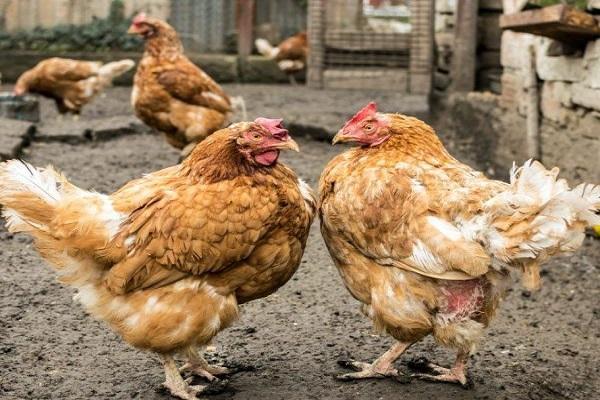
Abrupt changes in the environment
The regular change of environment causes stress and aggression in birds. In addition, in the cold season, there is a need for plumage growth. Due to the lack of vitamins and elements, birds can begin to peck each other.
Nutrition
Birds often peck at their relatives due to poor nutrition, as well as a lack of drinking bowls and feeders. With an insufficient content of trace elements in food, strong individuals can kill the weaker representatives to death.
Microclimate in the chicken coop
It is important to ensure that the house is in a balance between temperature and other parameters. Due to dryness, the feather becomes brittle, irritation of the mucous membranes occurs, and nervousness is noted in chickens.It is also required to exclude drafts.
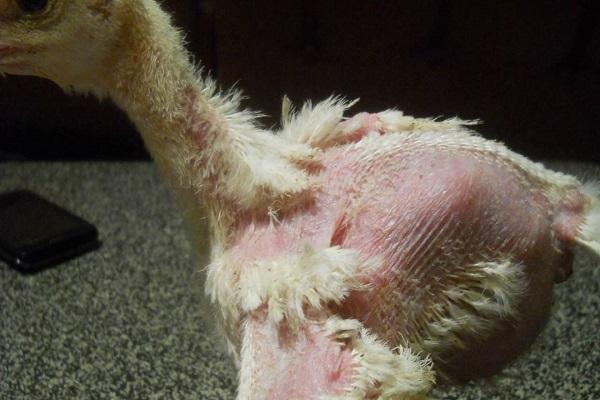
Ectoparasites
Cannibalism can be caused by infection with ectoparasites: ticks, fleas and lice. To get rid of them, chickens begin to peck at the inflamed area of the cloaca, pull out feathers, and damage the mucous membrane under the tail.
Signs of the onset of cannibalism
A visible sign that feather biting is occurring is not only the bald spots on the birds, but also the scattered feathers around the coop. Adult birds begin to peck at the crest and catkins of their relatives. With poor nutrition and low keeping conditions, birds attack tails, pluck feathers.
With a lack of protein, pecking of the skin, mucous membranes, body tissues and toes is observed. Injured hens lose weight, become sick and weakened, and lose the ability to hatch eggs.
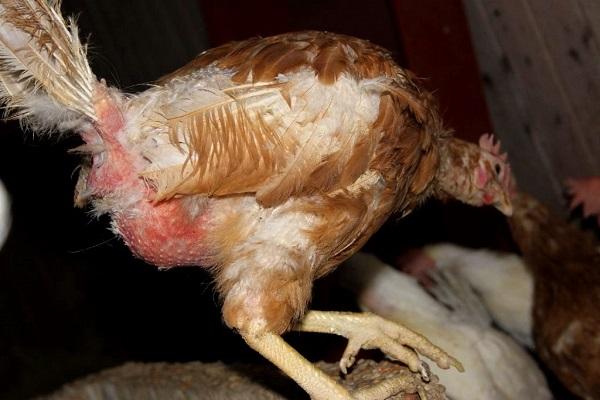
Ways to solve chicken cannibalism
In order to avoid the appearance of general pecking and serious problems with behavior in poultry, you need to monitor the diet of the chickens and their conditions. Comfort and proper diet will not only eliminate biting, but will also improve egg production:
- To begin with, eliminate sick and wounded chickens, since the blood will attract other birds.
- Make dietary adjustments - it is important to enrich food with calcium, vitamins and minerals. It is useful to give bone meal and table salt.
- Create comfortable conditions in the poultry house - maintain cleanliness, adjust lighting, eliminate drafts, set ventilation for optimal humidity in the room.
- To get rid of parasites, it is recommended to pour ash with gray and river sand into the chickens.
- Expand the coop and provide free space for the chickens.
Too aggressive representatives must be fenced off or stabbed to death, since it will not work to wean them.

Treatment of sick individuals
As soon as the first signs of pecking have been identified, laying hens with damage will need to be deposited immediately and provided the necessary assistance.
First aid
The main and first action in such a situation is the removal of the wounded bird from the flock and isolation until complete recovery. Attention should be paid even to those chickens that have minor wounds, as other individuals become more aggressive. To avoid infection, it is recommended to place the chicken in a separate cage.
Treatment of wounds
Next, you will need immediate treatment of wounds with antiseptic solutions. For local lesions, such remedies are suitable: penicillin, ichthyol or synthomycin ointment, tincture of iodine with glycerin, peroxide, brilliant green. Disinfectants can help prevent wound infections and possible complications.
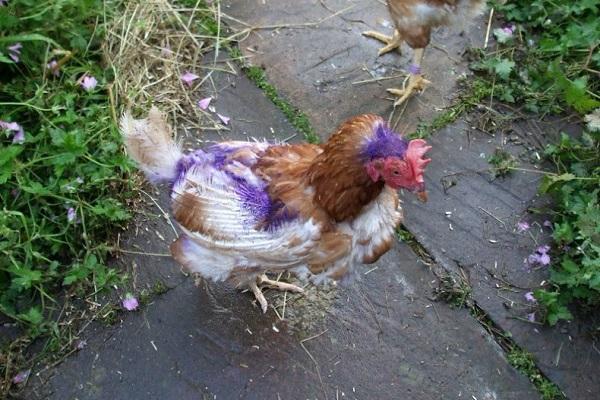
Bird care
Further measures include regular antiseptic treatment, changing dressings (if applicable), and monitoring the condition of the affected bird. If the chicken has a lack of appetite, infection is not excluded. In this case, you will need the help of a veterinarian and the appointment of drugs for the bird.
How to prevent pecking?
To prevent biting, you will need to take action before the first signs appear. Otherwise, aggressive behavior and attacks on chickens can become a habit, and then it will be extremely difficult to fix the problem.
Debecking
This method is one of the ways to prevent pecking in young animals. As a rule, this procedure is carried out on large poultry farms, using a special device. Youngsters cut their beaks one third of their length.
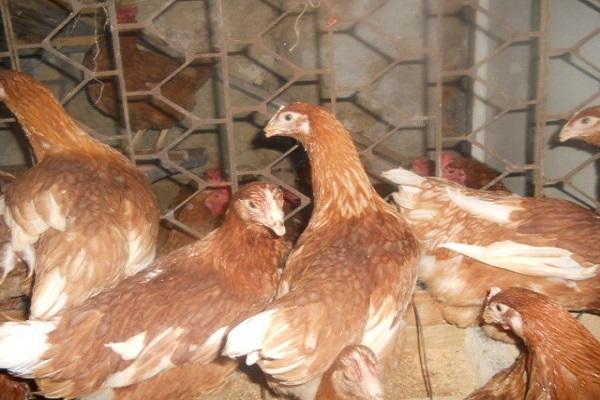
Chickens can be debaked at any age, starting with a daily one. However, the most optimal option is to carry out the operation in the sixth or seventh week.This procedure should be carried out exclusively by specialists who know about all the nuances of debaking: the length to be shortened, as well as the timing of the operation.
Doing this at home increases the risk of bleeding or bone damage, which can lead to infection.
Genetic selection
There are breeds that are difficult to grow and breed, since young animals have a low survival rate. Such individuals have increased aggressiveness from an early age. If they do not cut their beak, they can kill their congeners. Thanks to breeding work, it is possible to breed calmer breeds. If such chickens are present in the livestock, they should be allowed for meat.
Proper nutrition
The diet of chickens should be varied. In addition to compound feed, they will need vitamin supplements, as well as fresh herbs and vegetables. These foods contain minerals and substances that are essential for growth and development. The following vegetables are allowed: zucchini, pumpkin, beets and carrots. It is also recommended to hang a nettle broom, cabbage or grass in the chicken coop.
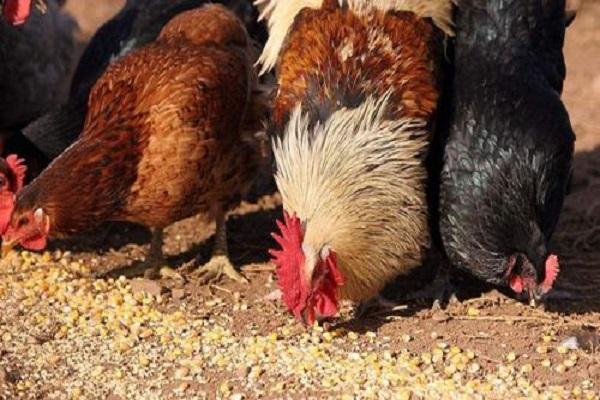
Light mode
Adult layers require separate shaded areas in the coop and direct sunlight should be avoided. Only chicks will need sunlight in the first days of life. Lighting is also recommended in the house.
In cold periods, chickens will need to extend the daylight hours - for this in the evening they turn on the light for a couple of hours. However, at the same time, the lighting should not be too bright - a 60-watt light bulb will do, which can be pre-painted with paint.
Using beak abrasives
To prevent pecking in birds, special devices are used. Since they are sprinkled with quartz sand, birds grind off their beak and claws about them, like sandpaper. Such abrasives are often added to feed. Thus, the chickens gradually grind their beaks and become practically safe for the rest.
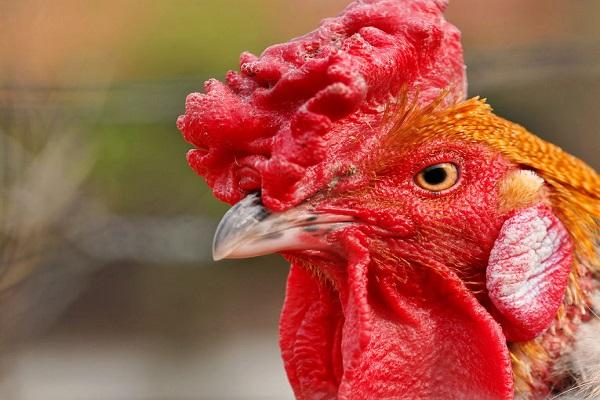
Free range of poultry
In a warm period of time, it is recommended to keep birds in free space all daylight hours. Free-range chicks grow and develop quickly and chickens become less restless. Also, thanks to free movement, birds find pasture that contains vitamins and other substances. Over a large area, they rarely come into contact with each other.
